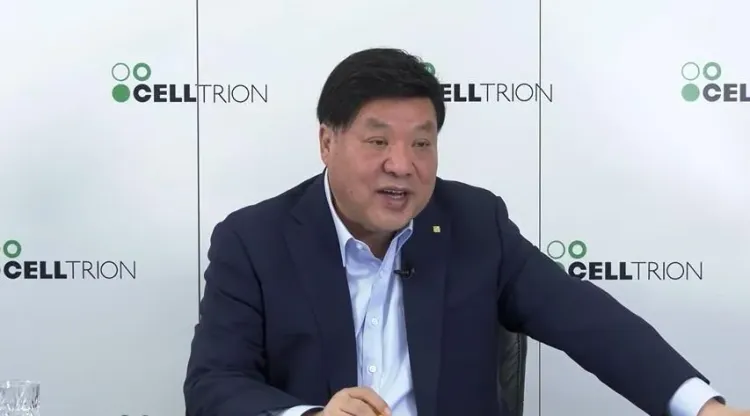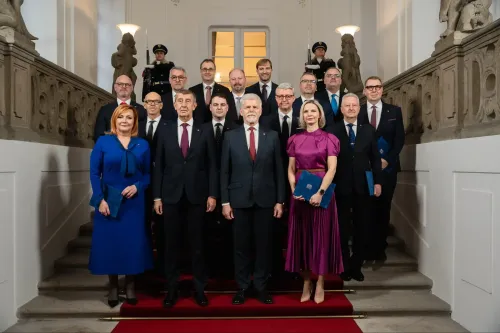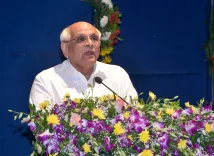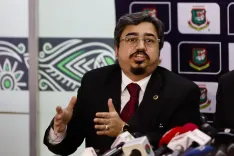Will South Korea’s Celltrion Weather Trump’s Drug Pricing Order?

Synopsis
Key Takeaways
- Celltrion's business is expected to remain stable despite new US drug pricing regulations.
- Chairman Seo attributes high US drug prices to distribution issues rather than pharmaceutical companies.
- The company has sufficient inventory to meet US market demands for the next 21 months.
- Celltrion plans to expand its biosimilar offerings significantly in the coming years.
- Potential US manufacturing facility could enhance operations and growth.
Seoul, May 15 (NationPress) Celltrion, a prominent biopharmaceutical firm from South Korea, announced on Thursday that its operations will largely remain intact despite US President Donald Trump’s executive order aimed at aligning drug prices with those in other countries. This order is designed to tackle a pricing system where the US pays a disproportionately high amount for prescription medications compared to other developed nations, as reported by the Yonhap news agency.
Chairman Seo Jung-jin stated during an online press briefing, “The exorbitant drug prices in the US are not a consequence of pharmaceutical companies, but stem from challenges within the intermediary distribution process.”
Trump's pricing initiative primarily targets intermediaries like pharmacy benefit managers (PBMs) and private insurers, which inflate costs for patients in the US, he explained.
In the US PBM system, original biologic drugs are usually prioritized in formularies, with a few biosimilars added later through competitive bidding. However, due to rebate issues involving intermediaries, biosimilars often have prices comparable to original drugs when prescribed in hospitals.
Seo expressed, “If the intermediary distribution framework, including PBMs, is revised, biosimilar manufacturers could negotiate drug prices directly with the government, eliminating intermediaries.”
He added, “This change would create more opportunities for Celltrion.”
Seo believes the executive order will have minimal impact on the company, as its biosimilars are already available in the US at significantly reduced prices compared to original drugs.
On the topic of anticipated tariffs on pharmaceutical imports, the chairman forecasted little effect on sales, pointing out that Celltrion’s leading biosimilars—Remsima, Herzuma, and Truxima—are exempt from these tariffs. The company has adequate inventory to supply the US market for up to 21 months.
The Trump administration is set to reveal item-by-item tariffs on pharmaceutical imports within the next two weeks.
To support continued growth, the company is evaluating the possibility of constructing a manufacturing facility in the US by the year’s end. Seo mentioned that they have finalized studies on 48 potential sites across eight states for this project, without going into further details.
He anticipates that Celltrion will generate sales between 4.6 trillion won ($3.29 billion) and 4.7 trillion won this year, an increase from 3.56 trillion won in the previous year.
Celltrion has significantly broadened its global biosimilar portfolio, expanding the number of approved products from six to eleven.
The company aims to commercialize 23 biosimilars by 2030 and 40 by 2038, while planning to initiate clinical trials for 13 original drugs by 2035.
Currently, Celltrion markets its sole original drug, Zymfentra, in the US for treating autoimmune diseases.
According to the company, the global market for its planned 23 biosimilars is projected to nearly double from 138 trillion won this year to 261 trillion won by 2030.










